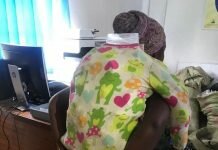
By Moses Kaketo
Seven years ago, Uganda Red Cross Society (URCS) was hit by a corruption scandal that soiled her image. No donor, volunteer or international partner was willing to associate with the 57 year old humanitarian organization.
Nearly Ugx. 6bn, was tied up in fictitious bank loans acquired through forged bank resolutions. Huge sums were also owed to statutory organizations like the NSSF and private suppliers.
The URCS was also battling with huge sums of donor money withdrawn from accounts and misused.
Everything was in a mess.
In total, the organization was battling with over Ugx. 26 billion in debts. The once leading humanitarian organization had to sell off their head office building along Lumumba Avenue in Nakasero to pay off the bank loans.
The road to recovery
‘’ old broom knows every corner’’, goes an English saying. There was no better person to handle the turnaround of the once mighty URCS, than Mr. Strategy himself- Mr.
March 2015, the Rubaga road based organization welcomed a new Secretary General (SG). Mr. Kwesiga took on the tough job of getting back the institution involved in various interventions, including assisting members of the public.
Mr. Kwesiga had served the institution in various capacities since 1991, before he was appointed SG in 1999.
He later joined the International Federation of Red Cross in Geneva in 2005, serving for two years, before being posted to be Southern Africa regional head of the Danish Red Cross for six years, starting in 2007.
Speaking at the launch of the URCS 2021-2027 strategic plan In Kampala last week, Mr. Kwesiga shared how the URCS managed to regain ’its space’ as a partner of choice In providing humanitarian aid.
‘’ You cannot avoid us now’’ he said.
‘‘I am delighted to present to you our strategic plan 2021-2025. ‘’ Mr. Kwesiga said while unveiling a new five-year strategic plan which focuses on financial and institutional sustainability, system coordination and service delivery.
The plan is expected to cost Ugx. 235bn.
‘’ The URCS just completed implementing a four year strategy 2017-2020 code named ‘‘Recovery plan; i.e. recovery from a governance and leadership crisis that hit the National Society around 2013-14’’ Mr. Kwesiga observed
Call him Mr. Turnaround, Kwesiga explained that the strategy that ended 2020 focused on rebuilding systems, structures and process to guarantee efficient and effective operations.
He said: Today, the URCS boasts of over 450,000 registered members’ and volunteers, 1,500,000 beneficiaries as at the end of 2019, working In 51 branch offices spread across the country.
He told the gathering that, ‘‘with the new systems in place, new leadership (governance and management) a great team of advisors, the URCS, has successfully gone through transition. Today I am happy to mention that we are a stable Red Cross, fully recovered to deliver on our mandate and do business with stakeholders in delivering quality humanitarian services‘’
The URCS has also seen a 160% jump in funding rise.
The SG revealed that the URCS has also regained partner confidence of doors and stakeholders; Red Cross family, the UN family, multinational and bilateral doors, the corporates and government of Uganda.
‘‘Hence URCS registered an increase in resource mobilized from Ugx. 26.6 billion In 2017 to 70 billion in 2020 to capacitate it to deliver humanitarian services’’ he said.
Mr. Kwesiga told Newz Post that the above successes were enabled by: improving processes and delivery model (enterprise-based approaches) governance realignment, strong management, supportive partners, clear mandates, reinvigorating volunteer membership and branch structures.
He went on: this was also achieved with vigorous and consultative approach from all stakeholders: the Uganda Red Cross, governance structures, branch network, staff, volunteers, partners, and government of Uganda.
Not yet Uhuru
Dr. Halid Kirunda, the chairman central governing board says ‘ ‘Our desire is to see branch development and growth, governance structures at branch level strengthened, management processes and capabilities enabled and resources raised to respond to the needs of people ‘’
‘‘We envision a well-functioning and responsive National Society. Our focus will be on organizational capacity and internal processes. For sustained operations, governance and management structures; finance and administration, supply chain management, risk management and internal audit functions will be further strengthened while performance management, planning, monitoring, evaluation and reporting PMER function will be established and operationalized’’ he said.
He adds: a grants management unit will be established to strengthen the grant management function. We will leverage the opportunities presented by innovations in information communication technologies.
He observes that Optimization of ICT systems across the organization will create efficiency.
‘ ‘The rollout of existing systems e.g. enterprise resource planning software at the branch level will improve the lead response time as well as increase accuracy In reporting. The automation of processes such as performance management, planning, monitoring, evaluation and reporting as well as supply chain management will address the system related challenges and help to achieve operational excellence
also read: Corporate turnaround: the rebirth of Uganda Clays
Key lessons learnt
Mr. Kwesiga told Newz post that the transform of URCS is a testimony that it’s possible to transform other institutions.
He shared some key lessons learnt.
‘‘Empowerment of management and staff is key ingredient In fostering high performance, public image and trust is critical unique resource for attracting and sustaining strategic partnership, the core services are cornerstone for NS with or without running programs.’’
read: Who exactly owns UMEME?- contract renewal is as treacherous as treason
He says mechanism should be put in place to ease and sustain capacity of NS to deliver the core service. Humanitarian activities are highly dependent on collaborations and partnerships, the building of strategic partnerships should be prioritized.
read: Patrick Mweheire: Hated by Ugandans, loved by Stanbic bank bosses in South Africa
More about the author click here:
















































